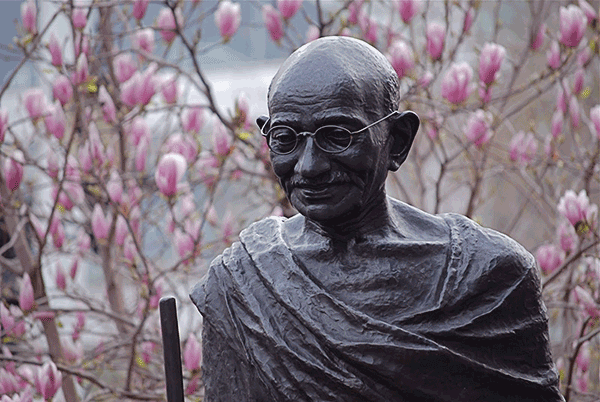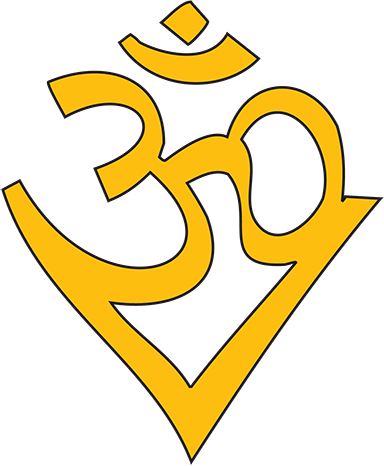
Published at gandhifoundation.org
A Conspiracy to defame Gandhi
A concerted international effort has been made to defame and downgrade Gandhi for quite a few years now. It seems that individuals and organisations involved in this campaign dislike very much the fact that Gandhi very proudly proclaimed his Hindu faith and culture. From wearing the traditional Dhoti to singing Hindu Hymns and having complete faith in the Hindu holy book the, ‘ Bhagvad Gita’, Gandhi was proud of his Hindu heritage. Gandhi was also deeply influenced by Jain leader Srimad Rajchandra whom he considered his spiritual guide.
The anti Gandhi lobby wants to defame Gandhi so that they can achieve their real target of belittling the world’s oldest and most vibrant faith. These people have a strong aversion towards the Hindu faith. The last Gandhi statue taken down was at a Ghana University. The vast majority of Ghanaians had no problem with the statue. However the hate lobby persuaded a few academics at the University that Gandhi was racist. All it then took was to organise a petition based on half truths and in no time thousands of people signed up. Tha hate lobby achieves its objective!
Those who are signing a similar petition here in the UK are unaware that during the Zulu protests against unfair taxes in 1906 they were flogged by the British as part of the punishment. They had festering wounds no one wanted to attend to.
It was the Indian Ambulance Corps formed by Gandhi who nursed the Zulus suffering from horrific wounds. The Ambulance Corps sometimes had to walk 40 miles a day with stretchers on their shoulders. They would carry the wounded Zulus back to the camp and nurse them. For Zulus Gandhi’s team of volunteers were God send.
It is in South Africa that Gandhi started a struggle against injustice and his experiences there were of immense importance in his strategy to confront the British Raj in India. Gandhiʼs nascent movement for justice in South Africa inspired and galvanized a whole generation of South African freedom fighters like Walter Sisulu, Oliver Tambo, Desmond Tutu and many others.
After Gandhi departed for India he left his son Manilal back in South Africa to continue the struggle. Manilal was present at a crucial meeting of the ANC in 1949, where he pressed the party to unconditionally adopt nonviolence but with little success. The attitude of the party toward the Gandhian ideal of nonviolence was in subsequent years best summarized by Desmond Tutu. He said: “Gandhi was to greatly influence Martin Luther King Jr., the leading light in the American Civil Rights Movement, as well as the South African National Congress of Nelson Mandela. So many, many people expected our country to go up in flames, enveloped by a catastrophe, a racial bloodbath. It never happened. It never happened because in the struggle against an evil of injustice, ultimately it did not take recourse to violence, and because you and so many others in the international community supported the struggle.”
Nelson Mandela wrote a wonderful article for the 3rd January 2000 issue of TIME magazine. The issue celebrated People of the Century. Mandela wrote about one of his teachers: Gandhi. His story was called The Sacred Warrior and shows some of the ways Gandhi influenced him. This is what he wrote: Gandhi dared to exhort nonviolence in a time when the violence of Hiroshima and Nagasaki had exploded on us; he exhorted morality when science, technology and the capitalist order had made it redundant; he replaced self-interest with group interest without minimizing the importance of self. India is Gandhi’s country of birth; South Africa his country of adoption. He was both an Indian and a South African citizen. Both countries contributed to his intellectual and moral genius, and he shaped the liberation movements in both colonial theatres. He was the archetypal anticolonial revolutionary. His strategy of noncooperation, his assertion that we can be dominated only if we cooperate with our dominators and his nonviolent resistance inspired anticolonial and antiracist movements internationally and in our century. Both Gandhi and I suffered colonial oppression and both of us mobilized our respective peoples against governments that violated our freedoms. The Gandhian influence dominated freedom struggles on the African continent right up to the 1960s because of the power it generated and the unity it forged amongst the apparently powerless. Nonviolence was the official stance of all major African coalitions, and the South African ANC remained implacably opposed to violence for most of its existence. Gandhi remained committed to nonviolence; I followed the Gandhian strategy for as long as I could but then there came a point in our struggle when the brute force of the oppressor could no longer be countered through passive resistance alone. We founded the Unkhonto we Sizwe and added a military dimension to our struggle. Even then we chose sabotage because it did not involve the loss of life and it offered the best hope for future race relations. Militant action became part of the African agenda officially supported by the Organization of African Unity (OAU) following my address to the Pan-African Freedom Movement of East and Central Africa (PAFMECA) in 1962, in which I stated, “Force is the only language the imperialists can hear, and no country became free without some sort of violence.” Gandhi himself never ruled out violence absolutely and unreservedly. He conceded the necessity of arms in certain situations. He said, “Where choice is set between cowardice and violence, I would advise violence… I prefer to use arms in defense of honour rather than remain the vile witness of dishonour …” Violence and nonviolence are not mutually exclusive; it is the predominance of the one or the other that labels a struggle.
It is a matter of great pride for Indians that Mahatma Gandhi has had such a enormous impact on so many people all over the world. Mahatma Gandhi was able to articulate the glorious heritage of India which had been stifled by invading armies for around a thousand years. Newly independent India also played an active role in bringing freedom to other colonised countries.
Those who are today asking for Gandhi’s statues to be removed for his alleged racism please first study the subject in depth and do not fall for fake news.
Nitin Mehta
12th June 2020
animalahimsa@gmail. com

Recent Comments